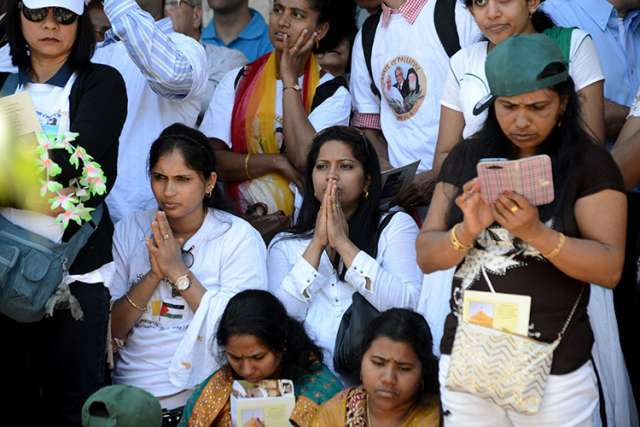In Luke’s account of the early Church in Acts of the Apostles, the Spirit made a rather noisy and flashy entrance into the community. It was the sole reason the disciples were told to wait patiently in Jerusalem, and it signaled the beginning of the Church. The rushing wind and fiery tongues empowered the disciples to speak boldly — gone was the terror and dread that had crippled the community in those days following the Passion. There was more: pilgrims assembled in Jerusalem from all over the known world heard Peter’s proclamation in their own languages. In Genesis 11, God had punished the peoples of the Earth for their arrogance and presumption by throwing them into linguistic confusion. The many languages separated people and created enmity. The Spirit was reversing this process — a true sign of God’s visitation and the dawning of the new age. This was to be God’s version of globalization — reconciling and bringing people together.
The unleashed Spirit went on to push back the barriers and boundaries separating people. Foods were declared “clean” as were all people, and those coming to faith in Jesus — both Jew and gentile — were brought (sometimes very reluctantly) to the same table.
In the era of fear and polarization in which we live the work of the Spirit is desperately needed. When allowed to do its work, the Spirit pushes us beyond our traditions, prejudices, fears and tendency to scapegoat. The message that the Spirit continuously whispers, and sometimes shouts, in our ears is “one God, one world, one people.”
Paul viewed the Spirit in the same way. The Spirit is the builder of humane and life-giving communities. It removes human labels and categories to form a unified body of people that all drink of the same Spirit. There is still diversity, for diversity is a gift, but all the members of Christ’s body share the same basic values and work for the common good. Putting aside selfishness and particularism and working for the common good is of vital importance for the world. Sustained selfishness and indifference to the needs of others is a recipe for humanity’s demise.
Genesis describes the creation of order and harmony out of chaos by the activity of the divine breath or Spirit. The Old Testament depicts this Spirit as the continual sustainer of creation. Its removal for even an instant would cause everything to revert to chaos and non-being. In John’s narration of the appearance of Jesus to the disciples in the upper room, Jesus countered their fear by wishing them “shalom” — peace and wholeness — and then proceeded to show them what that shalom meant. Jesus breathed on them and asked them to receive the Holy Spirit. John understood this as a new creation and the next stage in humanity’s spiritual evolution.
The charge that Jesus then gave His followers was the same that God the Father had given Him: to reveal God to a world burdened by ignorance, fear and a sense of separation and isolation. We remember that Jesus told His followers at the Last Supper that if one sees Him, he or she sees the Father. In other words, the encounter gives them a clear understanding of what God is like. Now the disciples were to do likewise (just as we are), but they could only accomplish this mission if Jesus gave them something that they did not have: the empowering interior presence of God. This interior presence produced the “shalom” that Jesus wished for the disciples. Being God-filled people enabled them to forgive, reconcile and unify in Jesus’ name.
The Spirit is the antidote for broken communities, fear and hatred, social inequalities and the sense of emptiness and loneliness that afflicts so many. For that to happen, however, the Spirit cannot be confined or sidelined — it must be allowed to become a vibrant and palpable presence.

